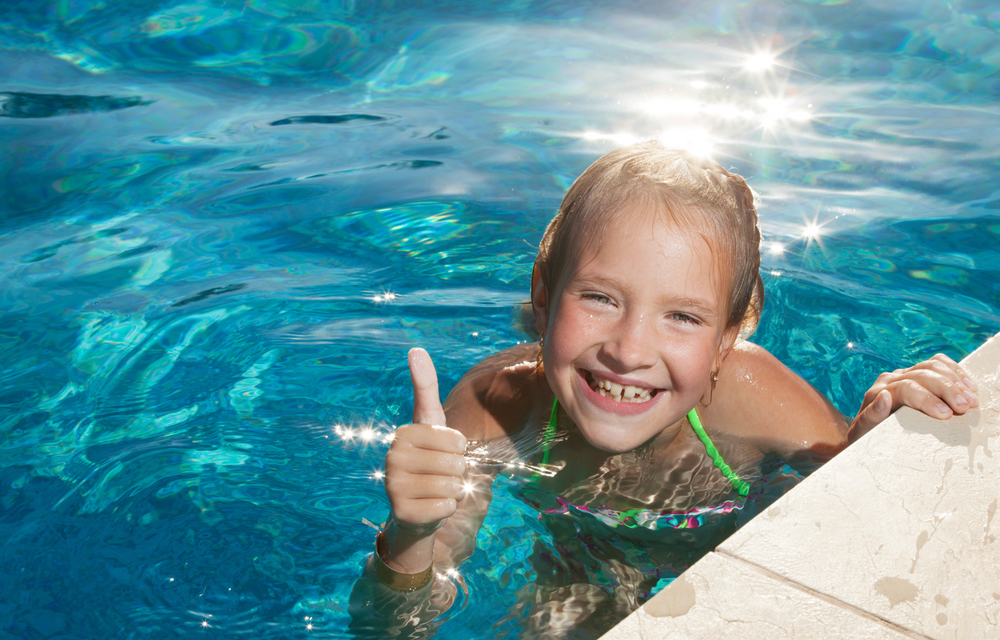What’s that smell? If you smell chlorine when you go out to take a dip in your swimming pool, that’s not a good thing. Many people think the scent of chlorine means their pool water is clean — it means the chemicals are out of balance. Why is the pool water making your eyes red? It is likely because the pool chemicals need to be tested and balanced.
When you notice red eyes, the scent of chlorine, dry itchy skin or green hair, contact your swimming pool service contractor in Champaign, Illinois and let him know. If your pool contractor is unaware of the issues you’re having he won’t know to adjust his service schedule in order to get your pool chemical balances back in line. It can only take a few days for chemicals to become unbalanced — a rain storm, a larger than normal swimmer load, skipping a pool maintenance visit are some of the reasons your eyes may be suffering when you swim.
Why is the pool water making your eyes red?
Chemicals are necessary to keep the pool water sanitized, but they don’t need to be in such high levels that your eyes and skin suffer. Once you’ve told us you’re having issues, here are things we will do to address the skin and eye sensitivity issues:
- pH and alkalinity levels will be measured. If they are too high or too low, skin and eye irritation are sure to follow. Proper pH and alkaline levels are the best bet for minimizing skin irritation.
- He may suggest you test the water levels daily until everything is correct. Following the addition of chemicals, your contractor will need to balance out the chlorine levels. Remember if you smell chlorine, you should call your contractor. “Free chlorine” has no taste or odor. When free chlorine reacts with bacteria, ammonia, or other waste products it is changed into combined chlorine or chloramines. Ammonia is released into the water from body waste and sweat. Combined chlorine – free chlorine and ammonia — has a strong odor and causes skin irritation and eye redness.
- Free and total chlorine levels will be tested and balanced. This is the first step in cleansing your pool of potential skin irritants. If you’re a do-it-yourselfer with pool maintenance, add chlorine to bring the free chlorine up to 10 times the combined chlorine; if the combined chlorine is 0.2 PPM, you will add 20 PPM free chlorine. This process is called “breakpoint chlorination” or “superchlorination,” the point where the chloramine bonds break apart. It is a scientific balancing act!
- Even if all the chemicals are properly balanced, some individuals are simply sensitive to the chemicals no matter what. If that’s the case, talk with us about an alternative cleaning agent or sanitizer other than chlorine. He may recommend like bromine or biguanide. These are more expensive than chlorine, they typically cause much less skin irritation. Making a switch to a salt water pool system, while pricy, may be an option.
Work with a swimming pool maintenance professional as he is experienced in the science behind chemical balancing and typically only needs one time of testing and adding chemicals to get everything back in line. Some do it yourself pool owners find they add one chemical, test, then need to add another, test again and have to go back to the beginning to add even more. Have a conversation with us to help assure you can enjoy your pool without the worry about red eyes and dry, itchy skin.

